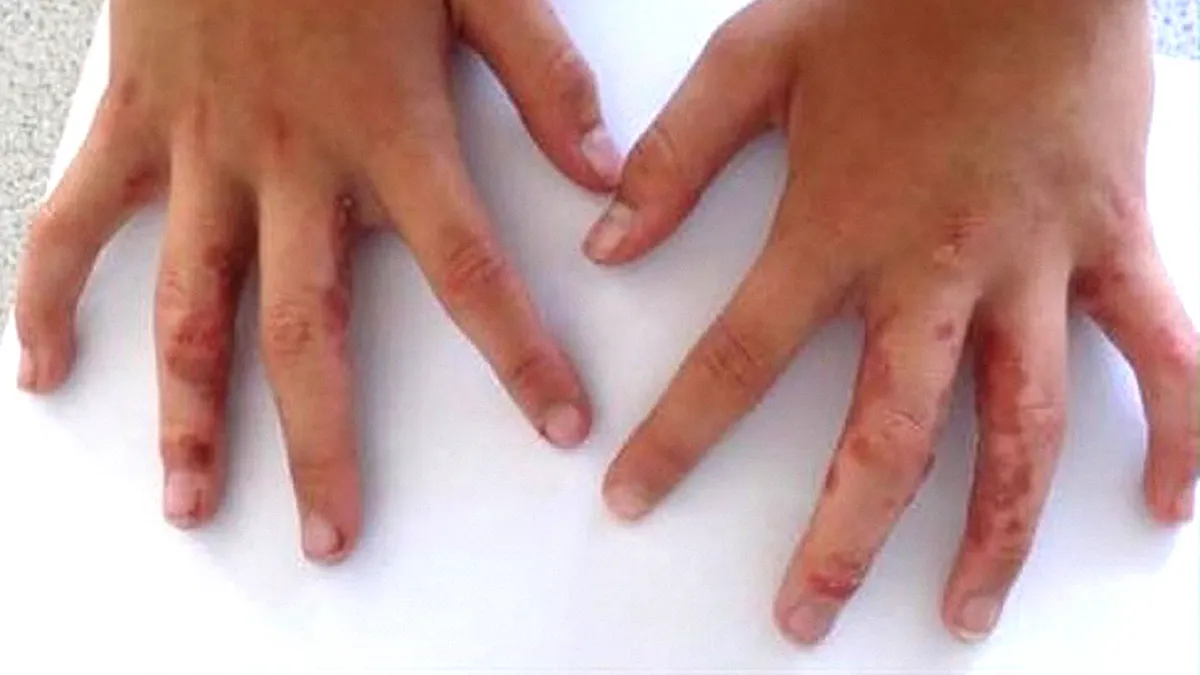
What are chemical burns?
Many chemicals that are commonly used at home, school or work can cause serious burns to the skin. It is important to wash any chemical off the skin as quickly as possible. Use a large amount of water.
Chemical burns can look very small. However, they can be very deep. The damage from a chemical burn can depends on:
- the type of chemical
- how strong the chemical is
- how long the chemical stays on your skin
Chemical burn first aid
If the chemical is on your skin, wash it off straight away with a large amount of water. Keep putting water on for at least 20 minutes. Continue washing even after the chemical seems to have been removed. This helps to reduce damage to your tissues.
If possible, place the person in a shower. The water will wash the chemical away from the body.
Remove clothes, shoes and socks. DO NOT try and remove anything that is stuck to the skin.
The person giving the first aid should be careful not to get any of the chemical on their own skin.
If the chemical is in the eye, tilt the head to the side. This is important as it will protect the other eye. Then gently wash cool water over the eye for 20 minutes.
After washing, cover the burn with a sterile dressing that won’t stick to the skin.

What are the symptoms of a chemical burn?
A chemical burn is similar to a burn caused by heat. Signs and effects of a chemical burn include:
- redness and burning at the site
- pain or numbness
- blisters
- blackened skin
A chemical burn to the eye can cause vision problems. A chemical burn to the lungs can cause coughing or shortness of breath (trouble breathing).
If the burn is very severe, the effects of the burn can cause:
- low blood pressure
- dizziness and faintness
- headache
- seizure or fit
- irregular heart beat or a heart attack
What causes chemical burns?
Most chemical burns are caused by either strong acids or strong bases. These are found in products such as:
- bleach
- concrete mix
- drain or toilet bowl cleaners
- metal cleaners
- pool chlorinators
- phosphorous (found in fireworks and fertilizers)
- petrol
Chemical burns often happen by accident. They can also be caused on purpose. This could be from an assault, self-harm or a suicide attempt.
Chemical burns are most likely to be on the face, eyes, limbs, hands or feet. Chemicals can also burn you inside if they are swallowed.
When should I see my doctor?
A doctor should always see chemical burns. Your doctor will examine you.
They will want to know as much as possible about the chemical. This includes how much chemical there was. It also includes how long the chemical was on your skin. Your doctor also needs to know what first-aid has been given to care for the burn.
How are chemical burns treated?
For a minor chemical burn, you probably won’t need to stay in hospital. You should follow your doctor’s instructions. These will include keeping your wound clean and stopping it from drying out. Sometimes the wound will need creams or dressings. The doctor will tell you what medicine you can take for the pain.
More serious burns will need treatment in hospital. The wound will be carefully watched and treated at the hospital. This is important to control your pain and prevent infection.
Can chemical burns be prevented?
You can help prevent chemical burns by:
- Always reading and following the instructions when using products containing chemicals.
- Always wearing safety gloves and eye protection when using or storing chemicals.
- Taking note of any warnings on the package. Make sure you understand them.
- Always washing your hands after using a chemical product.
- Making sure all containers with chemicals are labelled.
- Always storing chemicals in a safe place. This should be out of the reach of children.
- Have first aid supplies on hand to treat a chemical burn.

